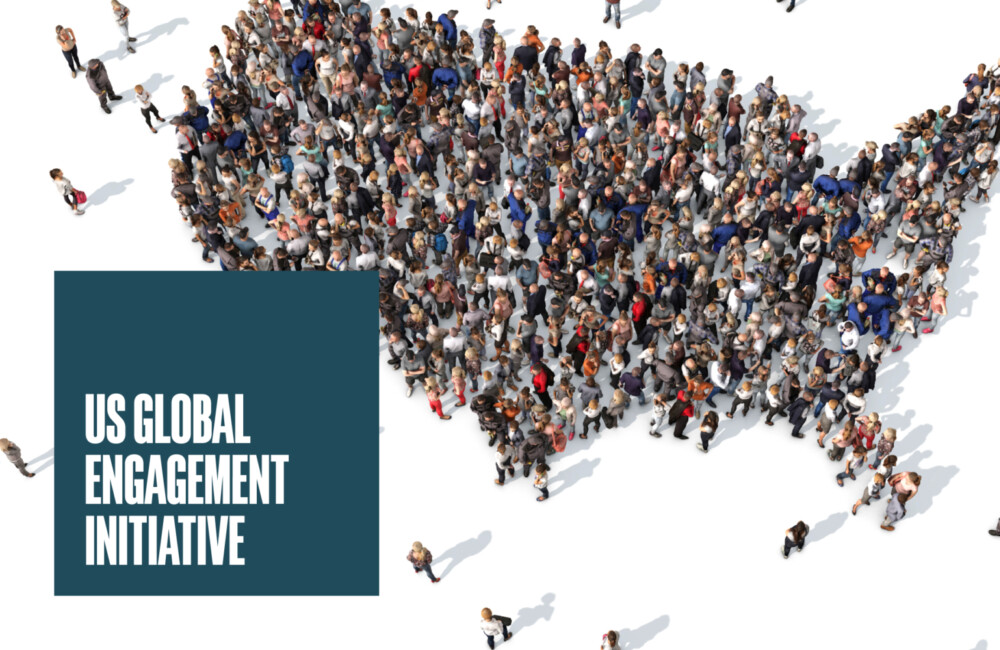Framing ethical perspectives
Multilateralism refers to a group of nations working together for a common goal. It is at the heart of international relations as nation-states form alliances with like-minded countries to take on global issues, such as climate, emerging technology, inequality, and collective security. Carnegie Council sees multilateralism as essential to generating solutions to global problems and a critical component of an ethical present and future.
Featured Multilateralism Resources
Inclusivity, AI & climate governance, and more
FEB 27, 2024 • Video
A Carnegie Council Conversation with the UK Home Secretary
MAR 28, 2024 • Video
Unlocking Cooperation: The Global South and Global North
In the inaugural panel of the "Unlocking Cooperation" series, Ramu Damodaran leads a discussion on forging a path forward for Global South/North collaboration.
OCT 18, 2023 • Video
Unlocking Cooperation: A Global Ethics Day Special Event
In this keynote event for Global Ethics Day 2023, Carnegie Council President Joel Rosenthal led a conversation on the psychology behind cooperation; ways that states, institutions, ...
Subscribe to the Carnegie Ethics Newsletter for more on ethics and international affairs
Related Initiatives
Model International Mobility Convention
The primary goal of the Model International Mobility Convention (MIMC) is to formulate new rules for migration and asylum that can benefit both migrants and refugees as well as their states of origin, transit, and destination.
Carnegie Ethics Accelerator
The Carnegie Ethics Accelerator is a new kind of incubator designed to empower ethics in the face of swiftly evolving challenges in technology and public policies.
Explore Our Multilateralism Resources

JUL 14, 2015 • Podcast
Eighteen Months On: Post-Maidan Ukraine
Professor Nicolai Petro was a Fulbright scholar in Odessa, southern Ukraine, for a year in the aftermath of the Maidan revolution. In Odessa once again, ...

JUL 2, 2015 • Article
U.S.-Russia Relations: Critical and Unstable
"What was a troubled relationship is now on life support, and the deterioration has taken place in the most existentially perilous area of arms control, ...

JUN 23, 2015 • Podcast
Ethical Leadership: A Conversation with Chuck Hagel
The one constant in Chuck Hagel's career has been ethical leadership. How have his experiences--in war, Congress, and as secretary of defense--shaped his leadership style?

JUN 17, 2015 • Podcast
Europe's Muslims: Challenges and Misconceptions
Months after the "Charlie Hebdo" attacks, questions remain about Europe's Muslims. How strong is the lure of al-Qaeda and ISIS for youth in France or ...

JUN 11, 2015 • Podcast
Agenda for the Future: Office of the UN High Commissioner for Human Rights
"Our planet is indivisible. There is no longer such a thing as a small, faraway country. No such thing as an acceptable level of discrimination, ...

JUN 1, 2015 • Podcast
From Nuclear Deterrence to Disarmament: Evolving Catholic Perspectives
In this timely and important discussion on nuclear weapons, Des Browne provides the broader policy context; Archbishop Auza presents the Holy See's position over the ...
MAY 29, 2015 • Podcast
Ethics in U.S. Foreign Policy: Spymaster Jack Devine on the CIA
"The thing that attracted me to the Agency was a sense of mission," says 32-year CIA veteran Jack Devine. In this discussion he talks candidly ...

MAY 22, 2015 • Podcast
Crisis in Yemen: Instability on the Arabian Peninsula
In this grim, masterful talk Bernard Haykel explains the complex historical background and current realities of the crisis in Yemen. In doing so, he analyzes ...

MAY 14, 2015 • Podcast
Israel, Iran, and ISIL: A Report on Security Challenges for the Greater Middle East
Charles Freilich, former Israeli deputy national security advisor, speaks on a wide-ranging set of topics, from Israel's post-election domestic politics to external threats from ISIL--and ...
MAY 12, 2015 • Podcast
The UN's Efforts in International Development: Relevant or Not?
Which development initiatives really work? Drawing on his personal and professional experience, the UN's David Malone notes that experts' projects often fail and there are ...




